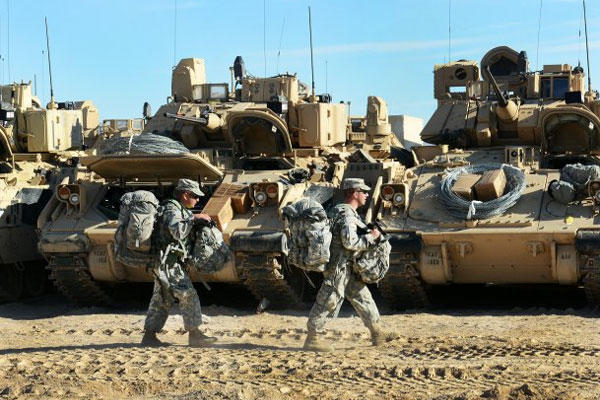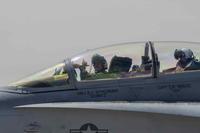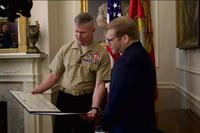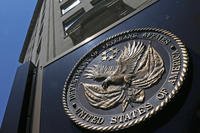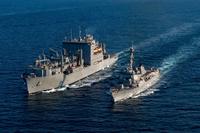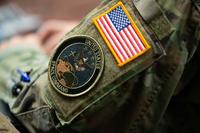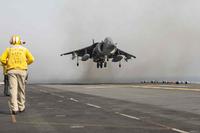The U.S. Army on Monday announced the 1st Cavalry Division will deploy 4,500 soldiers to South Korea next year as part of the rotation of forces in support of U.S. Forces Korea.
The 1st Armored Brigade Combat Team will deploy in early 2016, the service said in a press release.
"The 1st Cavalry Division reflects mutual commitment between the Republic of Korea and the United States by providing continued support with a rotational force brigade to replace Black Jack brigade," Maj. Gen. Michael Bills, the commanding general of the 1st Cavalry Division, said in the release.
"The Ironhorse brigade is ready to help maintain peace and security on the Korean Peninsula," he said.
In other recent deployment news, the service in early November announced that 500 soldiers from the 101st Airborne Division (Air Assault) would deploy to Iraq and Kuwait early next year to advise and assist Iraqi Security Forces.
The 101st headquarters element will assume the role of Combined Joint Forces Land Component Command-Iraq, replacing the 82nd Airborne Division headquarters.
During the nine-month deployment, the division headquarters will provide command and control of coalition troops that are training, advising, and assisting Iraqi forces as part of Operation Inherent Resolve.
About 1,300 paratroopers from 3rd Brigade Combat Team of the 82nd Airborne Division recently returned from a nine-month mission of training Iraqi army units as part of the advise-and-assist mission. During that deployment, the 3rd BCT formed in teams and helped to train about 12,400 new Iraqi army soldiers. The teams also worked every day with Iraqi Ground Forces Command.
--Matthew Cox can be reached at matthew.cox@military.com.
